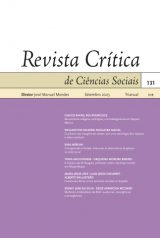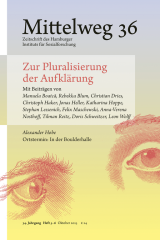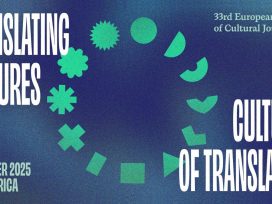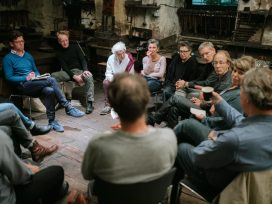While lasting peace between the Turkish state and the Kurds now seems a genuine possibility, Ankara’s assault on democracy continues. Sırrı Süreyya Önder, the longtime dissident who died last year, remains a symbol of hope.
Articles
Contemporary Moldovan novelists continue to thematize the struggle for linguistic, social and ethnic identity within the Soviet system. Taken together, their works form a literature of post-totalitarian recovery.

Change may be a constant, but sometimes it accelerates so fast that norms can be destabilized. Europe is adjusting to an increasingly multipolar world order, under pressure from US retrenchment and threatened military withdrawal, Russian cyber and trench warfare, and China’s technological dominance. What should European politicians be focusing on in the forthcoming year?
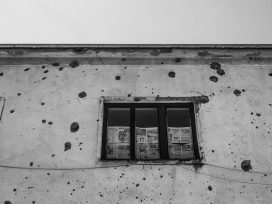
The Dayton Agreement put an end to the war in Bosnia and laid the grounds for today’s divided state. But what appeared as the triumph of the liberal order had been preceded by three years of political deadlock, with western policy driven primarily by media coverage of the atrocities.
Recommended topics

Throughout history, Belarusians have turned to their rich folklore traditions in harsh times. What may appear as a period of cultural stagnation is often a moment of resilience and creative revival. And the current wave of Belarusian folk texts, music and dance is no exception.
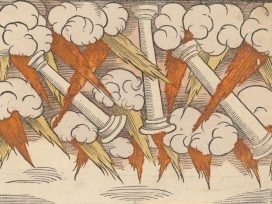
Is Charlie Kirk’s assassination-turned-martyrdom unofficially disestablishing the US constitutional clause against the government forming a national religion? And how astute would it be for diverse American sects to align their religious beliefs with Trump’s call for retribution? Even Pope Leo XIV has condemned the administration’s ‘unchristian’ policies.

Despite the uncertainty of recovery from ongoing war, Ukrainians are confronting Russian destruction and de-construction with daily acts of reconstruction. Marginalized landscapes, histories and stories are being rediscovered through a grassroots resistance founded on loss, where language and naming reclaim cultural foundations.

“Come Together” is founded on the principles of partnership and peer-to-peer learning among individuals within community media organizations situated in six different countries. Instead of generating entirely new knowledge, the initiative aims to unearth and leverage the existing wisdom residing within these organizations to foster innovative approaches.
Eurozine review
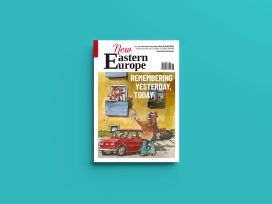
Between commodity and cult
New Eastern Europe 6/2025
Eastern European memory politics today: why numbers wars are bad diplomacy; the commodification of communism; Russia’s civic memory cult; Lukashenka’s ahistorical limbo.

Velvet margins
Kapitál November–December 2025
Queer, migrant and ethnic minority communities in Slovakia after ’89: homophobia and structural racism versus integration and upward mobility.
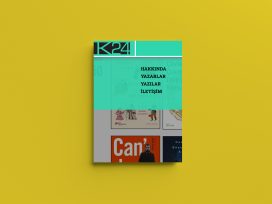
The state unconscious
K24 November–December 2025
Horizons of the Turkish novel; dissident disappointments; communists real and false; the feminine street.
Focal points

Crises tend to correlate with intense literary activity, but not necessarily with perspicacity. Our picks of 2025 have clearsightedness in abundance – as do all the articles Eurozine has had the privilege to publish in the past year.

Post-revolutionary Ukrainian society displays a unique mix of hope, enthusiasm, social creativity, collective trauma of war, radicalism and disillusionment. With the Maidan becoming history, the focal point ‘Ukraine in European Dialogue’ explores the new challenges facing the young democracy, its place in Europe, and the lessons it might offer for the future of the European project.

Inspired by a lecture that Clifford Geertz delivered in 1995 at the Institute for Human Sciences in Vienna, this focal point engages with ‘deep diversity’, ‘a sense of dispersion, of particularity, of complexity and of uncenteredness’ rather than unified world order. It follows the launch of a research programme of the same name at the institute in January 2023.
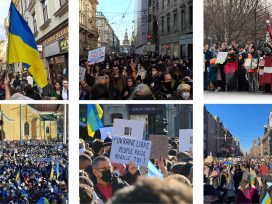
Russia’s invasion of Ukraine poses the greatest challenge to Europe’s self-understanding since World War II. Contributors to the new series ‘Lessons of war’ take on this challenge and reflect on the possibility of a ‘Rebirth of Europe’.

